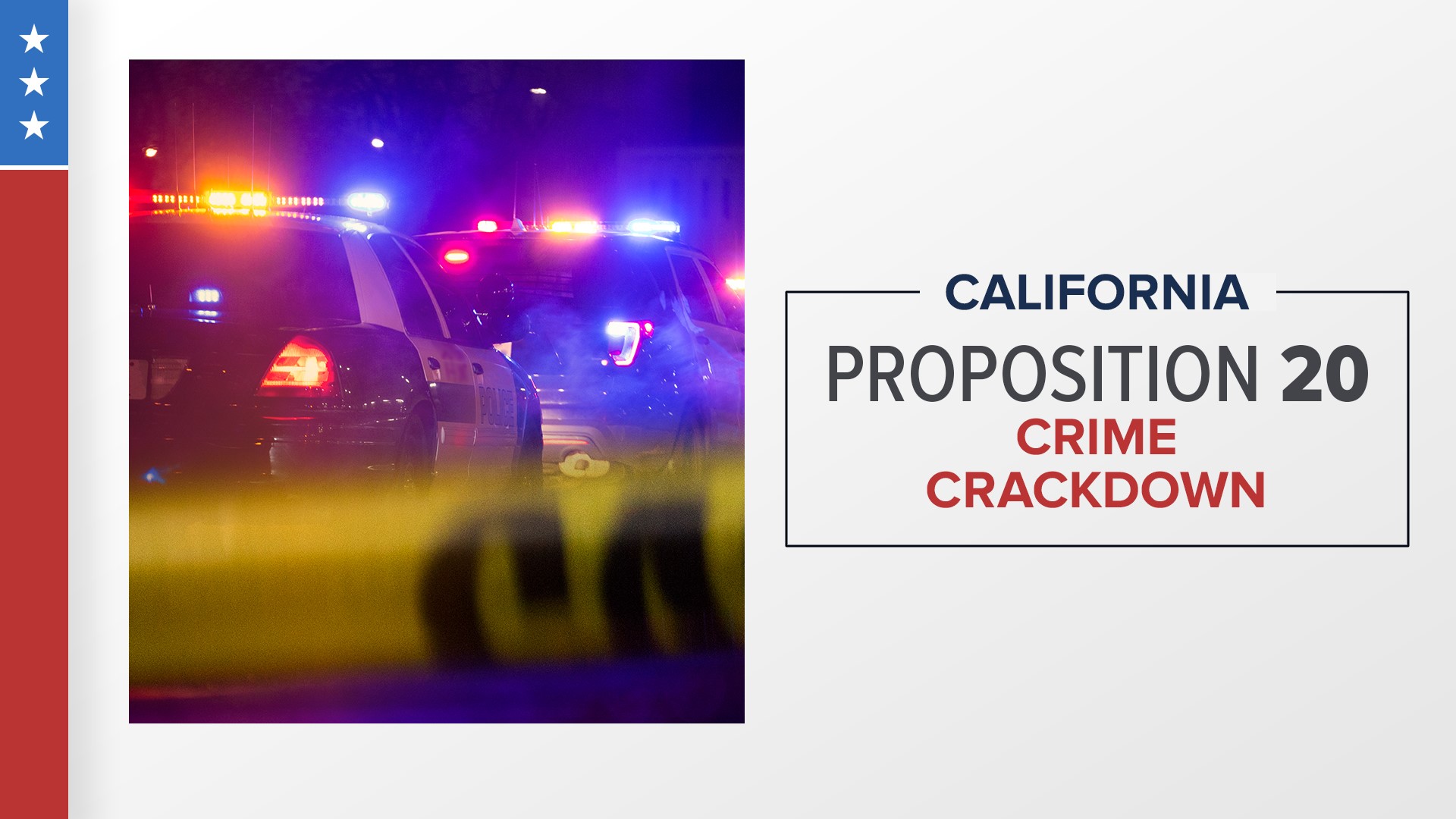CALIFORNIA, USA — California has upheld several criminal justice changes, endorsing recent efforts to ease mass incarceration by reducing penalties and allowing for earlier releases. They were also on pace to maintain the state's current cash bail system.
Voters defeated Proposition 20, rejecting supporters' pleas to address what they called the "unintended consequences" of two previously approved ballot measures.
Original Story:
Proposition 20 offers a mix of policies meant to make state laws tougher on crime.
If passed, there are three main things it would amend in the state constitution:
- Increase penalties for some kinds of stealing
- Make it harder for people to get out of prison on supervised release
- Require the government to collect DNA samples in more criminal cases
Just six years ago, Californians voted to reduce punishments for some types of stealing. Voters set the bar at $950. If the crime is under the $950 level, the charges are usually petty theft and a misdemeanor. If the crime is more than $950, it could mean felony charges.
According to the CA state voter guide analysis, that distinction can mean the difference between serving 6 months in the county jail or a few years in county jail or state prison.
The approval of Proposition 20 would allow felony punishment for stealing as little as $250 dollars or property. Specifically, this proposition creates two new theft-related crimes:
- Serial Theft - which is stealing after you already have two prior thefts involving property worth more than $250.
- Organized Retail Theft - which is repeat group shoplifting where more than $250 in property is stolen within 180 days.
Courts have the option to punish these cases as felonies or misdemeanors.
It would add several more crimes to the state’s list of “violent crimes” that disqualify inmates for early release.
Proposition 20’s list includes things like date rape, types of assault, and domestic violence.
Inmates who apply and are rejected for early release would also have to wait two years to reapply under Proposition 20, instead of the current one year.
The DNA samples would be collected from people convicted of specified misdemeanors for the state database.
Find more background about this proposition as well as opinions from both sides on the California Voter Guide or on your local voter guide.
What does a YES vote on Prop 20 mean?
A yes vote enacts the whole slate of changes to toughen California’s criminal laws.
What does a NO vote on Prop 20 mean?
A no vote rejects any changes to the existing laws.

